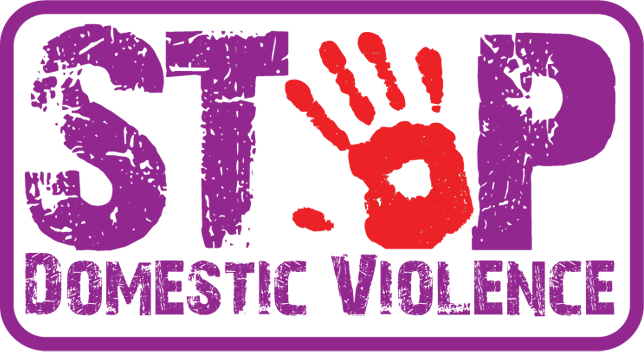
A new report has revealed that 136 spouses were k!lled as a result of domestic violence in Nigeria in four years.
The data compiled by Daily Trust Library said the analysis cuts across all the states, where the statistics reveal a pattern of domestic conflicts often turning fatal over reasons such as food, phone arguments or accusations of infidelity.
The findings underscore a disturbing reality, where beneath the surface of family life lies a growing wave of lethal domestic violence that cuts across regions, religions and social classes.
The data, compiled from national dailies between 2021 and 2025, shows that wives were overwhelmingly the victims, accounting for 96 out of the 1364 deaths, husbands made up 39 victims, while a single case involved a “wife-to-be.” One incident was recorded where both man and wife died.
From the 134 recorded cases of spousal killings across Nigeria between 2021 and 2025, Lagos State has the highest cases, with 17 recorded. Almost all the victims in Lagos were wives (16 out of 17), pointing to a persistent pattern of women bearing the brunt of intimate partner violence.
Behind Lagos are Edo, Ogun and Adamawa states, each recording 10 deaths within the same period. These states, though in different regions, share common triggers: domestic violence, jealousy and economic frustration.
In Lagos, for example, one woman was set ablaze by her husband, another killed for refusing to cook, while a third one was murdered after requesting repayment of a loan. One shocking case involved a man who removed his wife’s oxygen mask while she lay on a hospital bed.
In Edo, the causes ranged from domestic violence, refusal of sex and financial disputes, to more bizarre reasons like “refusing to lend him N2,000.”
Similarly, in Ogun, where 10 cases were documented, triggers included infidelity, control over family property and extra-marital affairs.
Adamawa, the leading state in the North, also recorded 10 killings. Here, the motives reflected deep-rooted gender conflicts. From the data, one woman was killed “for denying her husband s3x,” another “for taking his phone,” and another one after she accused her husband of infidelity. These cases paint a vivid picture of fragile relationships, where simple disagreements escalate into deadly confrontations.
Other states with high numbers include Anambra (9 cases), Delta (7) and Ondo (7), all in the southern belt, showing that the problem cuts across both urban and rural areas.
While northern states recorded fewer numbers, analysts caution that the data may not reflect the true scale as many northern families settle domestic tragedies privately, without police or media reporting.
Similarly, regional analysis shows that what happened between 2021 and 2025 spanned all the six geopolitical zones, though at varying levels of intensity.
The data shows that South accounts for nearly two-thirds (about 88 cases), while the northern regions collectively account for 46.
The South-West recorded the highest regional total with 45 deaths, led by Lagos (17), Ogun (10), Ondo (7), Oyo (6), Ekiti (4), and Osun (1). Here, domestic violence, infidelity and arguments over food or household duties were the dominant causes.
In one Oyo case, a husband was killed “over dinner,” while in Ondo, another man was murdered “after an argument over how to spend their earnings.”
The pattern shows that high literacy or urbanisation has not diminished the culture of domestic aggression.
Furthermore, the South-South followed closely with 33 cases, spread across Edo (10), Delta (7), Rivers (6), Bayelsa (2), and Akwa Ibom (2).
Many of these cases were linked to domestic quarrels, financial stress and accusations of infidelity.
In Delta, one husband slit his wife’s throat for “coming home late,” while another woman was murdered “over a N55,000 debt.
Edo State stood out for the number of men who also became victims, with one husband stabbed to death “after catching his wife with another man.
In the South-East, a total of 16 killings were recorded: Anambra (9), Ebonyi (5), and Enugu (1). Infidelity and domestic violence were the major drivers.
In Anambra, a woman was killed “over a loaf of bread,” while in Ebonyi, another was murdered “for roasting yam instead of cooking it.” These small domestic quarrels, often fueled by economic tension, continue to escalate into tragic outcomes
The North-East recorded 20 cases, with Adamawa (10) topping, followed by Yobe (4), Borno (3) and Gombe (3). The region’s stories reflect deep emotional and gender struggles.
Reports in the region show how a man killed his wife “for denying him s3x,” another “for accusing him of theft,” while one woman was slain “because she hated marriage.”
Domestic violence and forced marriage were among the reported causes, pointing to the persistence of traditional gender expectations that sometimes turn deadly
The North-Central region had about 16 cases spread across the Federal Capital Territory (FCT) (4), Niger (5), Nasarawa (3), Benue (2), and Kwara (1).
Here, many killings stemmed from domestic disagreement, jealousy and misunderstanding. In Nasarawa, a woman was killed “for inviting a carpenter to fix a window net,” while another was murdered “over a second wife.”
In the FCT, one man lost his life after an “argument over a phone charger.” The killings in the region suggest that even the country’s administrative heart is not immune to marital violence.
The North-West recorded the fewest cases (10) spread across Jigawa (2), Kano (1) and Kebbi (1), with others possibly unreported. Even within these smaller figures, domestic violence and non-consensual s3x appeared as key causes.
The underlying causes of the 136 spousal killings reveal a disturbing mix of anger, economic hardship, mistrust and cultural expectations.
Across the cases, domestic violence accounted for the largest share with over 40 incidents, while infidelity and jealousy appeared in about 30.
Another 20 cases were linked to financial disputes, hunger and sexual denial, among others.



